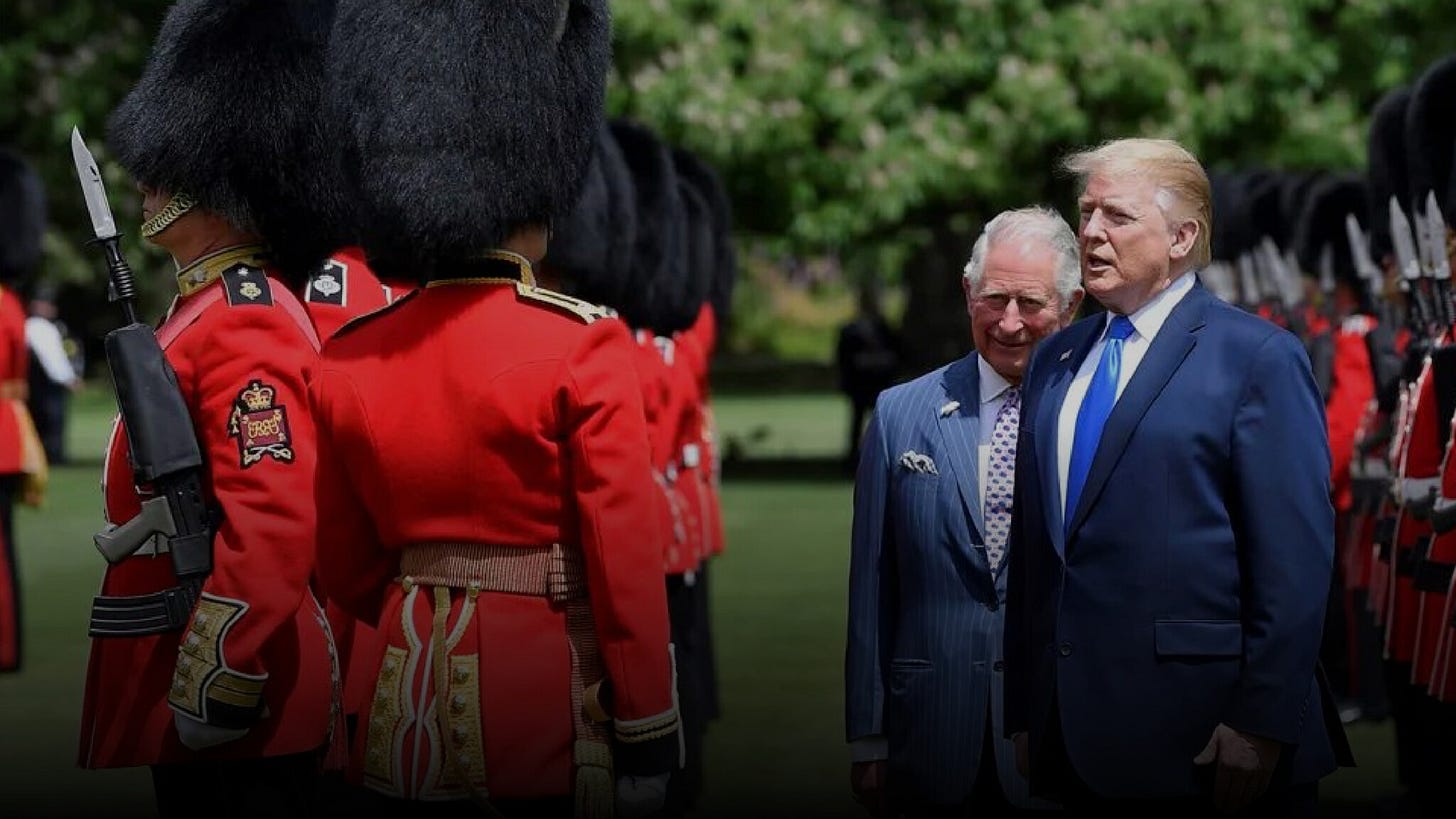The Special Relationship Under Trump 2.0 (Part III)
Looming Fights Over the Chagos Islands, Ukraine, NATO, and Trade
The Chagos Islands
In the face of deep ideological conflicts, and with a highly transactional president, it is advisable for Starmer to stress Britain’s continued utility to the cold, hard interests of the United States. In particular, he might remind Trump that British-owned real estate underpins American global supremacy, whether in airbases across Britain (which recently welcomed American B-52 bombers), Ascension Island deep in the South Atlantic, or the Chagos Islands in the Indian Ocean, which host an Anglo-American airbase on the atoll of Diego Garcia. Its location – midway between the Middle East and Asia – is strategically important; American planes flew sorties from it during the war in Afghanistan and both Iraq wars. Britain set up the base in the late 1960s and granted America the right to operate from it in return for a discount on a nuclear-weapons deal, displacing the native Chagossians in the process.
But on October 3rd last year Sir Keir’s government announced a preliminary deal to cede sovereignty of the islands to Mauritius. Under the agreement, the Diego Garcia base will remain in British hands and under American control for the term of a (renewable) 99-year lease. Britain will also pay Mauritius a large sum – initially £9 billion, though the Mauritians are now reportedly demanding £18 billion – to build infrastructure. Although the deal is clearly good for Mauritius, appeases progressives in London, and enjoyed the support of the Biden administration, it doesn’t much help the Chagossians, the British, or the US, and many conservatives in Washington and London alike suspect the real beneficiary may well be Beijing.
This article was first published on Courage.Media. You can read it on Ayaan’s new platform below:
According to press reports, Starmer and members of the outgoing Biden team resultantly wanted to finalize the agreement to cede sovereignty of the islands before President Trump could take his oath. Fortunately, wiser heads prevailed. Prime Minister Starmer agreed to welcome the new President to the negotiating table, and Foreign Secretary David Lammy confirmed that Trump’s backing was essential for the deal to go ahead. This is good news for the interests of both countries, as none of the arguments for the surrender of sovereignty stack up on closer inspection, but it also creates another point of potential tension between their governments.
Legally, Mauritius’s claim is hardly robust. The core of its case is a non-binding advisory opinion by the International Court of Justice saying that Britain violated international law in separating the Chagos Islands from Mauritius before its own independence in the 1960s. That may be a sound principle in general but it has weak purchase on the facts of this case. Britain, which acquired the islands de facto in 1786 and de jure by treaty from France in 1815, administered the territories together between 1903 and 1965, when it paid Mauritius £3m to renounce its claim. Mauritius shares no other pre-colonial history with the Chagos islands, however, and geographically the two are separated by more than 1,200 miles of water – or about as far as London is from Rome. And although worries have been expressed that the ICJ could one day issue a binding ruling on the matter, this would require Britain to agree to the court’s adjudication, as its consent to ICJ jurisdiction specifically excludes disputes with current or former Commonwealth members like the Mauritians.
British papers reporting the handover of the Chagos Islands, Britain’s last African colony, in October 2024.




